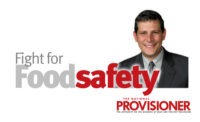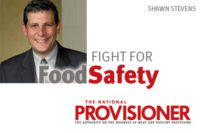Is it time to refit your tool belt?

Each year, FSIS introduces new regulations and revises old ones. Because every company is different, these regulations mean different things to each company. What works for one facility may not work for another. As such, companies need to ensure that they tailoring their tools to most effectively address the hazards unique to their facility.
In addition to your business, you can rest assured that your suppliers also will face significant changes. This often overlooked but critically important fact highlights the importance of communicating with all suppliers and ensuring that they too are specifically addressing the unique set of hazards they face. The co-dependent nature of supplier/processor relationships allows processors (when working together) to demand that their suppliers meet the highest possible standard.
There are a wide range of resources available to help companies understand what tools might best fortify their HACCP programs. These include industry and government Web sites, auditing firms, consultants and attorneys, who are all willing to provide advice, often free of charge. Companies should take time now to understand the scope and breadth of the changes they are facing and begin identifying tools which can meet the requirements of tomorrow.
Lastly, a company’s greatest resource is its employees. They are intelligent, caring people — many of whom may have years of experience in a wide range of processing facilities. Allow for a culture of food safety and encourage them to put forth ideas and suggestions for new tools; you may be surprised by the quality of their feedback.
A new year can be a new start. Reflecting today on the tools you will need to address the hazards of tomorrow will make for a much smoother, safer transition to 2013.
Looking for a reprint of this article?
From high-res PDFs to custom plaques, order your copy today!






